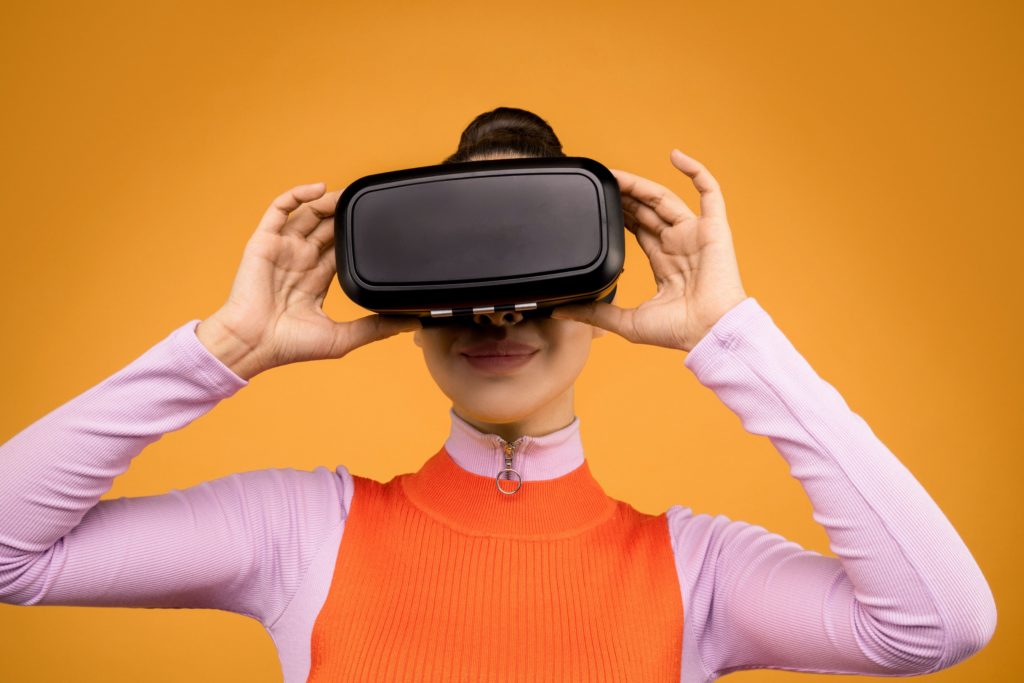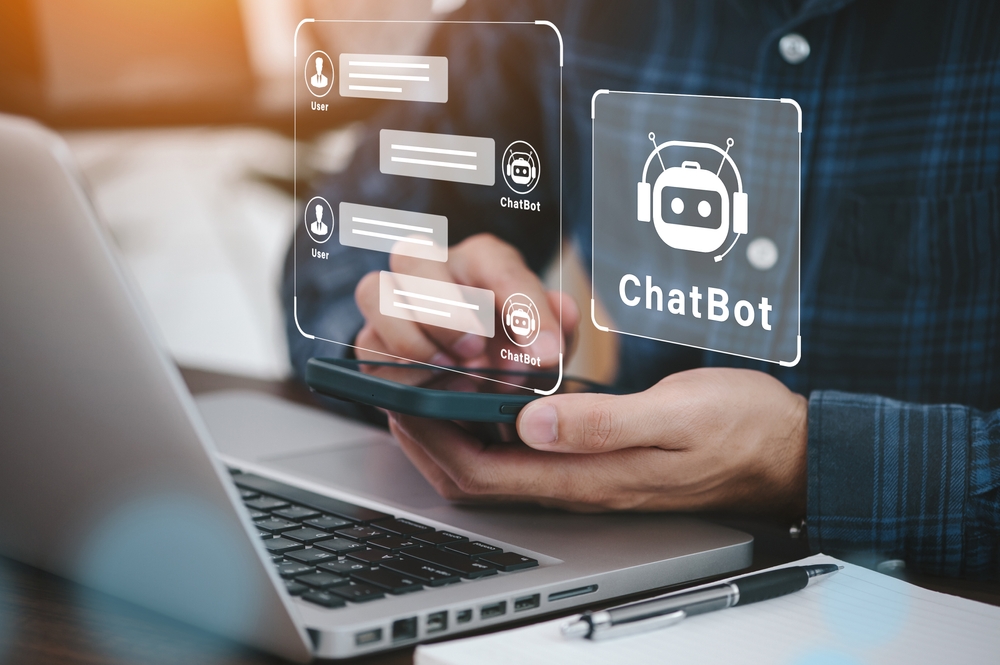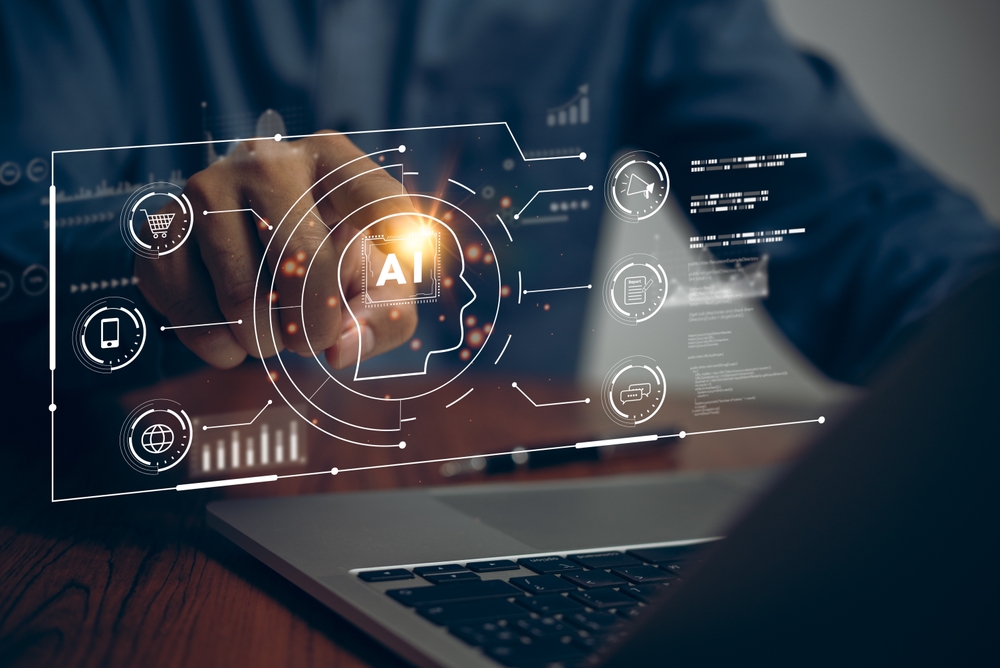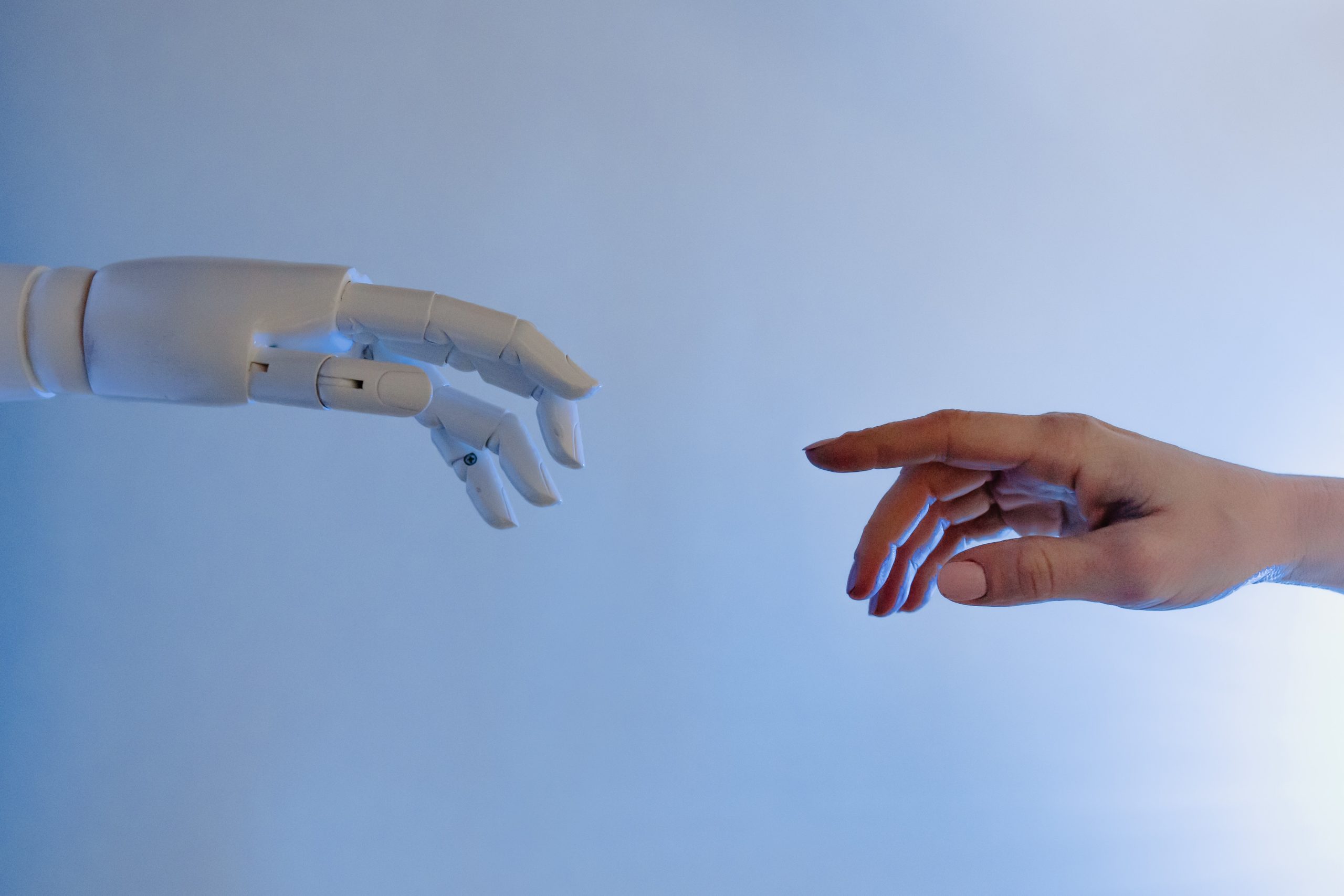Chatbots, virtual assistants, and other AI mechanisms have been revolutionizing the digital marketing landscape. While some marketers keep insisting that robots can’t replace humans, 71.2% believe that AI can surpass human performance.
By 2030, global AI will likely grow at a Compound Annual Growth Rate (CAGR) of 36.8% from 2023. AI for digital marketing empowers companies to craft more innovative and precisely targeted advertisements. But that’s not all. We decided to analyze the impact of AI in more detail, including 2024 digital marketing trends. Let’s see what the forecast is!
AI Marketing Trends
With all the advancements in technology, you can expect trends in digital marketing to evolve as well. Below are several emerging ones:
Voice Search Is on the Rise

Seventy-one percent of consumers prefer using voice search over physically searching for something online. Even more so, as of 2023, the number of active voice assistants in use stands at 4.2 billion, which is projected to double to 8.4 billion by 2024. This popularity led to the following developments in digital marketing:
- Conversational keywords – These optimize content by adjusting your website’s words and phrases to sound more natural, like how people talk when asking questions in voice searches.
- Voice-first content – Tailoring content specifically for voice interactions ensures it’s easily consumable and valuable when delivered via voice-enabled devices.
- Voice assistants – Integration and optimization of marketing strategies for voice-activated virtual assistants like Siri, Alexa, or Google Assistant offer brands new ways to engage with consumers.
- Localized voice search – Increasing focus on location-based queries optimized for voice benefits local businesses and SEO strategies.
- Voice commerce – It changes how you shop online by letting you use your voice to order products and make payments, transforming your shopping experience into an easier and more hands-free one.
More Augmented and Virtual Reality Applications
Augmented Reality (AR) and Virtual Reality (VR) have been around for a while but are still perceived as a novelty. Although these technologies are more widely used for video games, more and more companies realize that AR and VR are powerful tools for marketing strategies.

- Immersive customer engagement/experience – Brands are leveraging AR and VR for customers to interact with and experience products or services virtually, enhancing engagement and understanding.
- Multi-sensory technology – AR and VR goes beyond visuals and engages multiple senses like sound, touch, and even smell. Hence, they create more multi-sensory and impactful experiences.
- Personalized storytelling – AR and VR encourage brands to craft personalized narratives, letting them connect with audiences on a deeper level and tailor experiences based on individual preferences and behaviors.
- Enhanced product visualization – Enabling customers to visualize products in real-world settings through AR or experience products in depth through simulations, like apple VR, aids in better decision-making before purchase. For instance, immersive retail allows customers to virtually try on glasses and clothing and visualize products like furniture and paint within personal spaces.
Chatbot Marketing Is Getting Popular

Chatbots make marketing tasks more manageable. These AI-powered tools can handle various marketing processes, including collecting contact details and data for a sales call, responding to common customer service questions, or troubleshooting general technical problems.
In fact, approximately 90% of customer inquiries find resolution within ten messages or less. Besides streamlining such tasks, chatbots are also reliable in these AI marketing trends:
- Natural Language Understanding (NLU) – Chatbots with NLU are better at understanding human language, making conversations between users and bots more natural and effective.
- AI personas – Chatbots adopting distinct personas powered by AI provide a more personalized and engaging experience for users while aligning with the brand’s tone and style.
- Integration with voice assistants – Chatbots merging with voice-activated assistants like Siri or Alexa expand their reach and accessibility across various platforms, devices, and user preferences.
- Conversational commerce – Chatbots facilitate transactions and sales through casual interactions, streamline the customer journey, and enable seamless purchases within chat platforms.
To optimize chatbot marketing, it’s best to tailor chatbot interactions based on user behavior, preferences, and past interactions. Doing so provides a more customized and relevant experience. Moreover, ensure the chatbot has a defined purpose and provides clear guidance to users. You should also regularly analyze data and user feedback to refine the chatbot’s performance and enhance its effectiveness.
Hyper-personalized Advertising
From increased engagement to greater customer loyalty and solid conversions, fundamental shifts are taking place in traditional marketing processes, and this time, they’re personal. The amount and variety of user data available today set the stage for efficient personalization.
But there’s more to collecting information. Marketers can process the data to create value-oriented campaigns and directly serve the interests of the users. It’s not easy to do, but the reward is considerable.

- Personalized rewards – These are incentives based on individual customer behaviors, preferences, and engagement history. Rather than offering generic rewards, businesses analyze customer data to provide personalized offers that resonate with each customer, fostering stronger loyalty and satisfaction.
- Hyper-personalization analytics – This approach utilizes machine learning and AI to understand customer behavior at a deeper level. By analyzing browsing habits, purchase history, social interactions, and more, businesses gain insights to craft highly individualized marketing messages and offers, thereby maximizing engagement and conversion rates.
AI-Generated Content

AI has revolutionized digital marketing by offering efficient and scalable solutions for content creation. In fact, 85.1% of individuals utilize AI for generating content. Even more so, by 2030, AI is projected to add $15.7 trillion to the worldwide economy. This technology leverages machine learning algorithms to produce various blogs, articles, social media posts, and more.
Automated tools can create website content, product descriptions, and landing page copy, optimizing it for SEO and audience engagement. AI can also fabricate videos by assembling clips, images, and text, streamlining the video production process, and customizing content for specific audiences.
Furthermore, AI can generate personalized email content by analyzing recipient data and then crafting messages tailored to individual preferences and behaviors.
AI-Powered Marketing Automation
This development is another transformative force in digital marketing. Machine learning algorithms can process lots of data to identify patterns, behaviors, and trends, which better understand customer preferences and behavior. They facilitate predictive analytics, allowing marketers to anticipate customer needs and tailor offerings accordingly.
AI also enables detailed customer profiling, thus allowing highly targeted and personalized marketing strategies. These enhance customer experiences and increase engagement. Moreover, AI-driven automation optimizes marketing campaigns in real-time by analyzing performance metrics. It can then make quick adjustments to strategies, ensuring maximum effectiveness and ROI.
Redefining Digital Marketing with AI
One can hardly deny the advantages of using AI in digital marketing. New technologies are becoming increasingly available, and marketing agencies can now use them to improve their strategies. Whether it’s automating multiple processes, collecting and analyzing data, or personalizing campaigns to resonate with target audiences, there’s always something in it for marketers.
As a result, the way a brand uses digital marketing is changing dramatically. AI is a wildly evolving industry that offers countless benefits. To ensure you capitalize on its rich potential and keep up with the shifting trends, work with a digital marketing agency. Having a forward-thinking partner can help elevate your brand and sustain your success.







